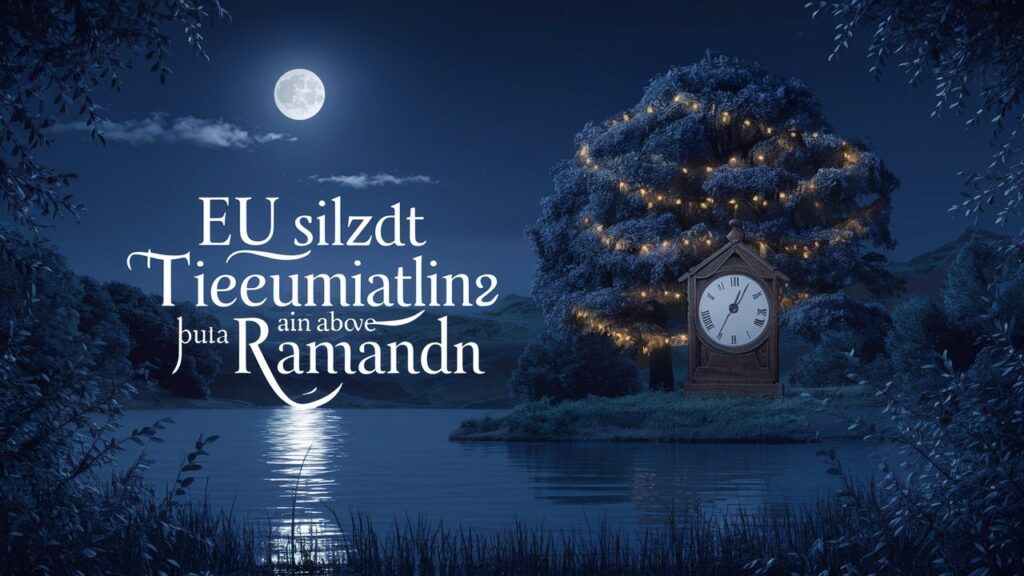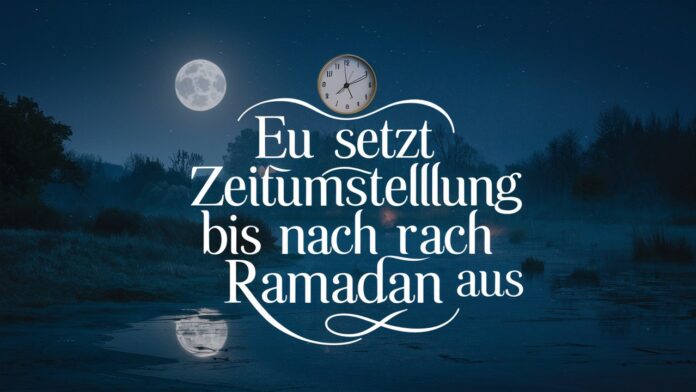In recent news, the European Union (EU) has made a significant decision regarding the practice of time change, specifically focusing on the period after Ramadan. This decision holds implications not only for the EU member states but also for the global community. Let us delve into the intricacies of this decision and its potential impact.
EU’s Policy Shift: Postponing Time Change
The EU’s decision to postpone the time change until after Ramadan marks a departure from previous practices. This shift in policy reflects a nuanced understanding of cultural sensitivities and practical considerations. By delaying the time change until after Ramadan, the EU aims to accommodate the needs of its diverse population, particularly those observing this sacred period.
Cultural Sensitivities and Religious Observances

Ramadan, the ninth month of the Islamic lunar calendar, holds profound significance for Muslims worldwide. It is a time of fasting, prayer, reflection, and community. During Ramadan, Muslims abstain from food and drink from dawn until sunset, breaking their fast with iftar, the evening meal. The observance of Ramadan follows the lunar calendar, which means its timing varies each year. This variability presents challenges for individuals and communities navigating daily routines, including the scheduling of work, school, and other activities.
Practical Considerations and Public Welfare
The decision to postpone the time change until after Ramadan underscores the EU’s commitment to promoting inclusivity and respecting religious diversity. By aligning the time change with the conclusion of Ramadan, the EU seeks to minimize disruptions and facilitate a smoother transition for individuals and communities. This approach reflects a holistic understanding of public welfare and social cohesion.
Global Implications and Diplomatic Significance
The EU’s decision regarding the time change carries global implications and underscores the organization’s role as a leader in international affairs. By prioritizing cultural sensitivities and religious observances, the EU sets a precedent for inclusive policymaking. This approach fosters goodwill and strengthens diplomatic relations with countries and communities around the world. It also demonstrates the EU’s willingness to adapt and evolve in response to changing societal needs and dynamics.
Stakeholder Engagement and Consultation Process
The EU’s decision-making process regarding the time change involved extensive stakeholder engagement and consultation. This inclusive approach ensured that diverse perspectives were taken into account and informed the final decision. Key stakeholders, including religious leaders, community representatives, and policymakers, were actively involved in shaping the policy outcome. This collaborative effort reflects the EU’s commitment to participatory democracy and transparent governance.
Implementation and Communication Strategy
As the EU prepares to implement the decision to postpone the time change until after Ramadan, effective communication will be essential. Clear and concise messaging will help mitigate confusion and ensure widespread understanding of the rationale behind the policy shift. Public awareness campaigns, educational initiatives, and outreach efforts will play a crucial role in disseminating information and engaging stakeholders. By proactively addressing questions and concerns, the EU can foster trust and confidence in the decision-making process.
Conclusion: A Step Towards Inclusivity and Understanding
In conclusion, the EU’s decision to postpone the time change until after Ramadan reflects a commitment to inclusivity, cultural sensitivity, and public welfare. By prioritizing the needs of diverse communities and aligning policy with religious observances, the EU sets a positive example for inclusive governance. This decision carries implications beyond the EU’s borders, signaling a commitment to global cooperation and diplomatic engagement. As the EU moves forward with implementation, effective communication and stakeholder engagement will be key to ensuring a smooth transition. Overall, this policy shift represents a step towards greater understanding, respect, and unity within our increasingly diverse society.


